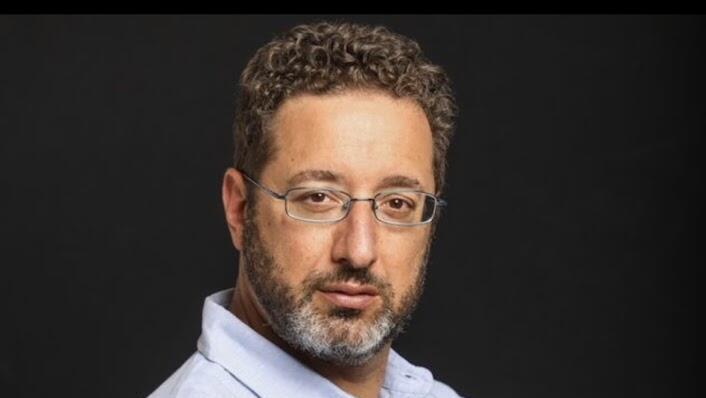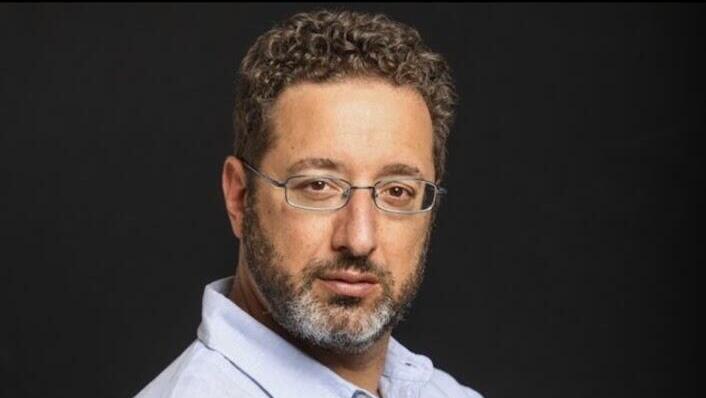“After 10 years of continued growth and success, we have a generation of founders and VCs who are facing a hard time for the first time,” said Oded Hermoni, Co-founder and Managing Partner at J-Ventures. “The shift is also from an entirely founders game to investors play. Yet the terms of equity rounds are yet not down to 2019 or even to 2020 and everyone is waiting for it to come.”
With the exception of the period during the pandemic, Hermoni argues that some of the members of the VC space are unfamiliar with how to tackle the challenge that lies ahead. “The crisis of the unicorns was a significant change that will impact the next years. The past two years were so different that the whole model collapsed… In the past two years, they had only the risk, unless they invested in a unicorn that exited.
1 View gallery


Oded Hermoni
(Photo: N/A)
“We need to find back the balance between supporting and funding good founders and companies, building an ecosystem where it’s a Win-Win again, and less the greediness of ‘20-’21,” he added.
Name of fund/funds: J-Ventures Group (J-Ventures and J-Impact)
Total sum of fund: $65M
Partners: Oded Hermoni, Jim Koshland (J-Ventures Group), Eran Sandhaus (J-Impact)
Notable/select portfolio companies: Visby Medical, Cents, BeeHero, Veev, Descope, Finout, ConnieHealth, Ecplysium, Epic, Bright Security, SOC Prime, Data Robot, Home365, Omada, Circles, GrayMatters, Hourly Insurance
Hermoni has joined CTech for its 2022 VC Survey series to share his predictions on what 2023 will bring.
If 2020 was the year of the pandemic, and 2021 was the year of records, how would you define 2022 in the VC sector?
2022 is the aftershock of the craziness of 20/21, and a hold to observe the situation until getting back to normality. We have 140 VCs in our fund as LPs, mostly from Silicon Valley – and we have ongoing conversations with them among them, they all try to see where others are at. Even the top tiers are on hold.
Most VCs were focused in 2022 on current portfolio companies, trying to keep them strong and alive. In the past months, most of the financing rounds were safe rounds to avoid setting up a valuation or having a downround.
Unicorns are back to being a rare breed of animal. 2022 was an especially challenging year for unicorns who had an unreasonable valuation in the past years and have a high burn rate. For them, and it was very predictable, it was the hardest year, and will be the hardest time (yet, some raised so much money in the past year so they can survive a long time if they adjust expenses). Seed companies, especially in Israel, are still ok in terms of funding and didn’t see a drop in valuations, which means they will have a bigger challenge in the A round.
What events and developments over the past year will determine the unique characteristics of this year?
After 10 years of continued growth and success (except for Q1/2 2020), we have a generation of founders and VCs who are facing a hard time for the first time. The shift is also from an entirely founders game to investors play. Yet the terms of equity rounds are yet not down to 2019 or even to 2020 and everyone is waiting for it to come. The crisis of the unicorns was a significant change that will impact the next years. The past two years were so different that the whole model collapsed. When early-stage investors invest they should take the risk and have some reward. In the past two years, they had only the risk, unless they invested in a unicorn that exited. Strong founders in the past two days made exits of $10-20 million through secondary deals even before the company had significant validation. This will end and I think it is all for the good. We need to find back the balance between supporting and funding good founders and companies, building an ecosystem where it’s a Win-Win again, and less the greediness of ‘20-’21. What we will also see is the death of many of the small funds and also bigger funds that were founded in the past years, mostly by successful founders of one exit. We will discover again that VC has a methodology and portfolio management and not just signing checks.
Who are the big winners of 2022 and why?
Companies that are downturn resilience, in areas that will not change in a downturn economy like Healthcare, Insurance, and Needed Services (we have companies like Cents which is a vertical SaaS of laundromats, or BeeHero which is pollinating crops of almonds – those will keep growing in such environment). Companies that make enterprises more efficient and save money, and companies who grow fast in revenues, will gain more interest than companies with only tech and slow growth. Diverse VCs also won in 2022. Despite the efficiency of Zoom – I think Israeli companies based in the US will have easier growth in 2022 and 2023 than ones in Israel.
Who are the big losers of 2022 and why?
Investors of most of the companies who were identified as unicorns in 2020-2021, and their current growth and revenues are far from supporting this title and have a high burn rate, will be the biggest losers of 2022. Yet, in many cases, the founders, who cashed out through secondary deals in those years, are not the losers as they already made their exits. The employees of such companies also lost a lot in 2022, as their options are not close to being in the “money”.
What do you expect in the VC sector in 2023?
I honestly believe that we will see a certain kind of “blood in the streets” as many startups from the past years will be shut down or have major layoffs during Q2-Q3 when the VCs will reduce their support for current portfolio companies (they already had a major write off for them during 22’) and will focus on new deals. As a result, many companies that are either not performing, not growing fast, or are too far to get to a certain benchmark, will have a hard time raising money and will end up closing.
It will be very hard to find jobs for certain positions during the first three quarters of 2023: HR, Marketing, Sales, some R&D, support will be mostly hard.
On the other hand, most VCs will call for the commitment they have and will start investing in more early companies or companies that are shining out as good and growing. Good companies will be even better and will attract investors in such times.
Valuations will finally get officially down in Q2-Q3 as many companies who raised safe rounds will have a formal valuation of priced rounds and they will be lower than what we have seen in the past years. Climate, efficient, fast ROI, needed cyber, healthcare companies will gain more interest and more money.
What global processes will affect (positively and negatively) the Israeli market?
Israel, for good and for bad, is like a small boat in this ocean. Companies can shift first and pivot, faster than we see in the US for example. However, Israel can’t be a bubble. We see now that many Israeli VCs raised a lot of money for Seed, and the valuations are not yet down in this segment. Many of the Israeli VCs invest in tech and the Israeli companies are not growing as fast as US companies in terms of revenues. This could create a gap- while the Israeli companies will raise money at high valuations for Seed, they will not meet the benchmark needed for an A round in the US and will be too expensive. This could cause a problem for Israeli founders trying to raise money outside of Israel or a down rounds.
How should different companies (large, medium, early-stage) prepare for the coming year?
We are back for business fundamentals, where companies will be expected to have growth in revenues and raise less. The good news: the cost of work will be less and with the new platforms of development and storage, they can grow much less and much faster. We invest very diversely and in businesses that are relatively strong in bad times as well as in good times. And they grow even in the past year’s downturn.
What will be of the dozens of unicorns born last year?
I think for many the status of being a unicorn – for their ego and for their investors and employees – was more important than actual valuation. Funds published socks of unicorns as a symbol of success. And for a good reason – they felt they invested in the best companies around. This race, today, is a double side sword for them as it’s hard to stop the capture they had, to make large layoffs – and mostly to cut expenses. So many of them know they will have down rounds in the future – or different terms which will translate to such even if not in the valuation. The good news for many of the unicorns is that they raised a lot of money when they could. If they play right the game and extend the run way for a few years- it could eventually bring them to a valuation of today. It will be harder for the ones who got this title with $6m of revenues and raised $200m. For them it’s just runway – as the chance that they will be worth the valuation they had in the next 4-5 years is nearly impossible.
What sectors in high-tech should we look out for in the coming year?
The main ones are the ones that bring better efficiency in storage, and in expenses. Stable industries in good times and based times like insurance, banking, healthcare. In SaaS, it would be vertical SaaS. Others could be when there’s a clear needed market places
HR: The biggest layoffs are ahead of us, unfortunately – I believe we will see many more in Q2-Q3 of the coming year.
Finout, Ecplysium – J-Ventures’ notable portfolio companies
Finout
Cloud cost management
Founders: Roy Ravhon, Asaf Liveanu, Yizhar Gilboa
Founding year: 2021
Explanation behind investment: Cost efficiency would be one of the most important issues in the years to come. Finout, working with Finops, is one of the leaders in this space.
Ecplysium
Cyber Protection for Firmware and supply chain
Founders: Yuriy Bulygin
Founding year: 2017
Number of employees: +70
Explanation behind investment: Most of cyber goes to software, but the hardware infrastructure companies use could risk them if not identified and protected.
Credit: Source link


Comments are closed.